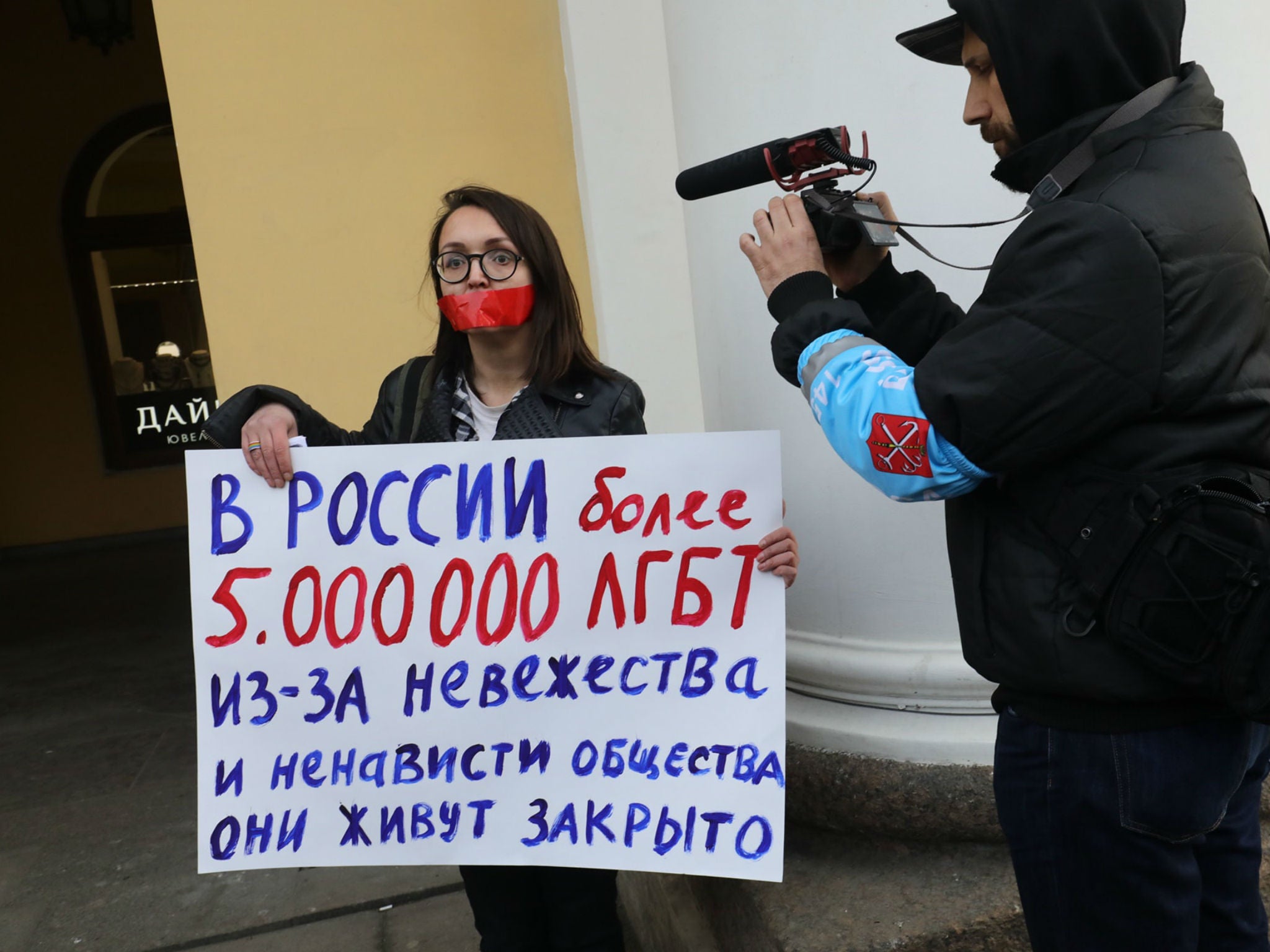Prominent LGBT+ activist murdered in St Petersburg
‘She asked me to look after her cat if anything happened to her,’ says close friend, as Russian authorities accused of failing to act on clear threats to Elena Grigorieva’s life

Your support helps us to tell the story
From reproductive rights to climate change to Big Tech, The Independent is on the ground when the story is developing. Whether it's investigating the financials of Elon Musk's pro-Trump PAC or producing our latest documentary, 'The A Word', which shines a light on the American women fighting for reproductive rights, we know how important it is to parse out the facts from the messaging.
At such a critical moment in US history, we need reporters on the ground. Your donation allows us to keep sending journalists to speak to both sides of the story.
The Independent is trusted by Americans across the entire political spectrum. And unlike many other quality news outlets, we choose not to lock Americans out of our reporting and analysis with paywalls. We believe quality journalism should be available to everyone, paid for by those who can afford it.
Your support makes all the difference.Elena Grigorieva, 41, only came out in January this year. On Sunday evening, seven months later, her corpse was discovered in bushes between a school and tower block in St Petersburg’s southern suburbs.
The LGBT+ activist had been strangled after being stabbed eight times in the face and back.
Prioritising “domestic” explanations in the investigation, Russian authorities said Ms Grigorieva may have been attacked by several people in a dispute. She was last seen in the company of her girlfriend and four men, drinking spirits on a bench on the street near her home on Saturday evening. Police have already arrested and released a 40-year old man over the incident.
Friends and colleagues say they believe her death came as the result of her activism.
Ms Grigorieva, a complicated character associated with nationalism in her youth, moved to Russia’s northern capital from the town of Veliky Novgorod. She soon became well known among St Petersburg’s activist community, friends told The Independent, protesting about everything from Russian aggression in Ukraine to domestic violence and prisoner rights. Over the last year, she turned to LGBT+ rights.
The threats began almost immediately after she came out as bisexual at the start of the year, friends say. There were many threats – mostly private, sometimes public. The last of them came three days before her death. In early July, Ms Grigorieva found herself included on an assassination list compiled by a group calling themselves “Saw”. Their website, styled by the horror film of the same name, offered cash rewards to those prepared to assault and kidnap LGBT+ people. It was online until just a week ago.
Two months ago, Ms Grigorieva was attacked at the entrance to her home and told that LGBT+ people had “no right to live.”
The Independent has seen the detail of some of the private threats made to Ms Grigorieva. One, sent from a Russian social media account called Don Kotiano, contains disturbing images of two sharp daggers and homophobic language. Friends say the activist reported this and other threats to police. On Tuesday, police denied ever receiving the information.
Alexander Mironov, a longtime friend, was one of the people to whom Ms Grigorieva turned for help. “She asked if he would look after her cat if anything happened to her” – a request, he says, that made him “turn to stone”. Speaking from a vet’s office, tending to the cat now in his care, Mr Mironov said he has cursed himself for “not helping in time”.
“I was frightened for her,” he said. “I should have moved in, lived with her for a bit.”
Igor Kochetkov, another activist named on the Saw list, said reporting threats to the police was ineffective. His own work as the head of the Russian LGBT Network, at the frontline of efforts to evacuate at-risk people from Chechnya, made him an obvious target for extremists. But even after reporting public threats – and despite a ruling from a St Petersburg ruling inaction to be illegal – police have refused to do anything.
“Activists always face certain dangers,” he said. “Murder is certainly exceptional, but the threats come almost daily. Authorities ignore the sites and social media groups that distribute those threats and lists.”
It is unclear why Ms Grigorieva was specifically targeted – if indeed she was killed for her activism. She was certainly not the most well-known activist in town. Neither did she appear to be intricately involved in the most dangerous work, for example around Chechnya. But it would be a mistake to search for logic, says Yuri Gavrikov, an activist who accompanied Ms Grigorieva on many demonstrations.
The attacks on Russia’s LGBT+ community are “as random as they are frequent”, he said.
“Four weeks ago, a gay couple I know were walking near Moscow’s Kursk station, about to catch a train home,” he added. “They’d been together a long time, held prestigious jobs, had large families. But outside the station, some creep approached them, pushed one of them, who decided to complain and stand his ground. What happened next? He was stabbed directly in his heart, and died an immediate death in the arms of his beloved. Tell me, why was he targeted?”
Vitaly Milonov, a politician best known as the architect of Russia’s 2013 anti-gay laws, told The Independent that he could not understand why people were so concerned with the anti-LGBT+ activist.
Mr Milonov said LGBT+ activists should leave investigating the murder to police authorities.
“Of course the murder should be investigated and the killers found,” he said. “But using the death of their colleague for political PR ends shows that these activists are b******s.”
Join our commenting forum
Join thought-provoking conversations, follow other Independent readers and see their replies
Comments